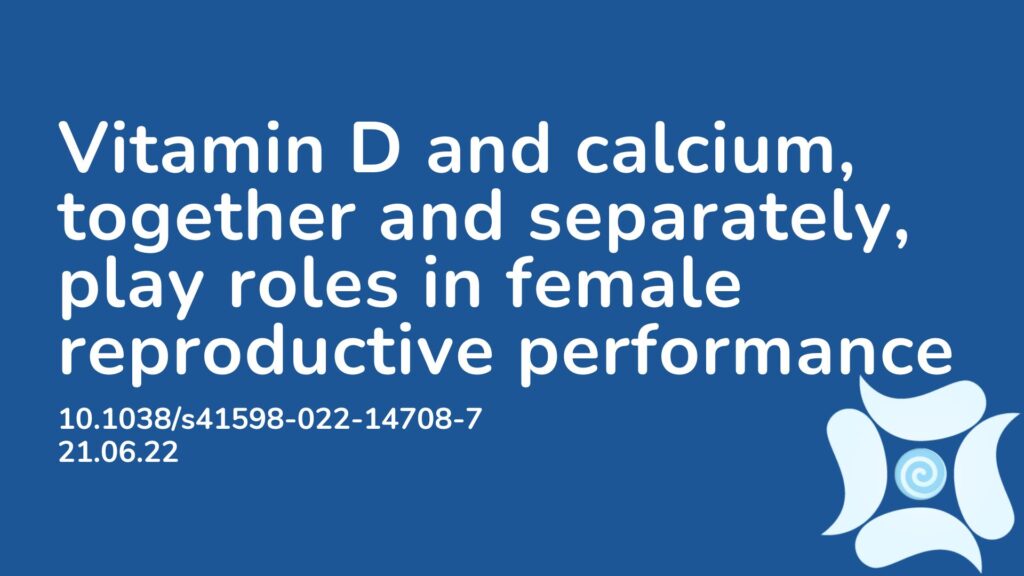Summary: Vitamin D is an essential nutrient that plays a major role in the immune and skeletal system and the function of many organs. Vitamin D deficiency is common, affecting approximately 50% of people globally and is a major public health concern. A deficiency in vitamin D is known to be associated with infertility in both male and females, however it is unknown whether this result is dependent or not on the role of calcium. To measure this, the researchers of this study modified vitamin D and calcium doses against each other in both deficiency and normal states to understand their relationship on oocyte maturation as well as reproductive performance. The results showed that vitamin D deficiency reduced the fertility rate and offspring survival. Calcium deficiency had a similar impact, even when vitamin D levels were normal. It also found that the effects of a vitamin D deficiency on reproduction were reversed when correcting calcium levels. This research shows that although independently they can be problematic for fertility, the relationship of vitamin D and calcium is still synergistic and they support each other to support healthy fertility
Abstract:
Vitamin D (VD) deficiency reduces the chances of successful fertilization; however, it remains to be validated whether this effect is dependent or not on calcium. To address this question, we generated several situation using a mouse model in which VD content was either increased or decreased in a normo or hypocalcemia context. After the measurement of serum 25-hydroxyvitamin D2, calcium and phosphorus levels, an analysis was carried out in terms of oocytes maturation as well as reproductive performance. VD overdose, despite the fact that it resulted in an increased number of mature oocytes, reduced developmental competence and offspring survival. VD deficiency (VDD), on the contrary, reduced the number and percentage of mature oocytes, blastocyst rate, as well as fertility rate and offspring survival. Hypo-calcemia when VD levels were normal, had a similar effect than VDD. The effects of VDD were reversed by a diet that corrected calcium level. Therefore, both VD overdose (in a context of normal calcium level) VD deficiency as well as hypo-calcemia have an effect on female reproductive function. In conclusion, although closely related, VD and calcium act in part independently of each other in defining the “optimum” for female reproductive performance.
Article Publication Date: 21.06.22
DOI: 10.1038/s41598-022-14708-7




